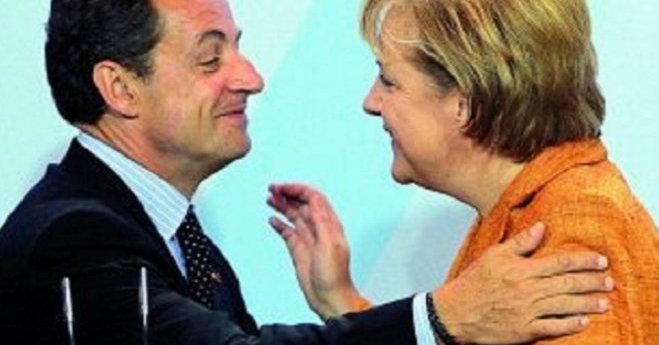The Franco-German entente has been the engine of the European unification process from the end of the Second World War on. In fact, all of the fundamental steps of the integration process have stemmed from the initiative of these two countries: the most recent example is the creation of the euro. Both the French and the German political class have been able to understand the necessity of creating a united Europe in order to maintain peace and ensure the economic and social welfare of the continent.
The process has long been backed by a strong consent on the part of the citizens. The problem is that this support has begun to weaken, coincidentally with the creation of the euro and even more with the enlargement. This is because in the first case the birth of the euro had been followed by promises, which then remained unfulfilled, about making Europe the most competitive economy of the 21st century; in the second case it is because the project that drove the enlargement process was never clarified, consequently transforming the EU from a growing political construction into an organization considered, almost exclusively, as a big integrated single market. Therefore the current Union no longer benefits from the trust of a large part of its citizens, because it is not up to the challenges posed by this phase of the global process.
Analyzing data in more detail, we can see that in Germany citizens’ lack of trust concerns most of all the euro: for example 34% of entrepreneurs are worried about a eurozone collapse; while 67% of the electorate would even be in favour of the withdrawal of Greece from the monetary union, an opinion also shared by some economists. Distrust towards the more indebted countries of Southern Europe is growing, in the fear that Europe should pay for the effects of their crisis.
In actual fact, both experts and the public opinion agree on the fact that the reason why the euro cannot work is the lack of a political and economic union. This should lead the government to the proposal of a strategic plan to press forward with integration; in this way, there would also be a greater probability of regaining electoral support, now in decline, as the surveys demonstrate: for instance, they denounce that only 14% entrepreneurs declare to fully trust the work of the government. But the executive prefers establishing policies that are more linked to short term electoral interests rather than to the European ones; and in general German ruling class has a nationalistic vision of the country’s interest.
A sign of this direction is the way in which the country pursues openness towards new markets and emergent political actors. An example of this is the agreement with Russia regarding energetic supplies, with the project of building two new pipelines, the North and South Stream. Other countries are also involved in these projects, such as France and Italy, but Germany has built up far tighter relations with the Russians. Suffice it to see that the only non-Russian member of the Gazprom board of directors is German.
German policy is also very active in China and in India, to make its enterprises gain ground: many of the great urban and railway infrastructures in these countries are awarded to German societies. Data on external trade confirms this tendency: notwithstanding the fact that Germany’s major partners are still countries like France, Italy and Holland, the sales towards China and India have tripled in a decade, while the growth of export towards the European countries is negligible. Germany seems to be increasingly interested in the international sphere rather than in the European one, strengthened by the fact that its actual growth rates seem to confirm that it is the only European country capable of becoming one of the top industrialized countries within fifteen or twenty years.
Nonetheless Germany – and this is the country’s political short-sightedness in this moment – finds itself in a position of weakness in its relationship with these countries, even though it is the economy with the most solid industry in Europe, merely because of its difference in size compared to these continental giants. Moreover, Germans seem to underestimate the support that the European market, in a way shaped on their needs, gives to their economy and to their competitive capacity. It is thanks to European integration that Germany could rebuild its economy after the war to reach its actual level and, in these past few months, it was the very existence of the euro which helped reduce the otherwise heavy consequences of the economic crisis.
Germany’s behaviour, which heavily contributes to the stalemate of the integration process, is thus short-sighted and counter-productive. It is now evident that the EU risks disintegration without real political unity. In this case the Germans would also suffer from serious consequences and their aspirations to become a world economic power would be destined to failure.
On the other side France has demonstrated a lack of clear projects regarding European unification in the past years. Rather, the government tends to pursue its own interests, above all in foreign policy, profiting from its force de frappe and from its permanent seat in the UN Security Council.
In particular in the Middle East, France pursues a policy of its own, not always contributing to the pacification and stability of this region. In 2009, a new French military base was inaugurated in Abu Dhabi. Moreover, the defence agreement with the United Arab Emirates was renegotiated: according to the secret clauses of the agreement, France committed to using all military means at its disposal, in order to defend the Arab Emirates if they were attacked; among these, there could be also the atomic weapons, even though they are formally never mentioned in the agreement.
Furthermore, the country tries to exploit its nuclear technology in its foreign policy, as it appeared in the international conference on nuclear power for civil use, in which dozens of countries and organizations participated, in the OECD headquarters in Paris in March 2010. Officially the French philosophy is that the pacific use of nuclear technology should be equally accessible to every country, but this seems to target in particular some Middle Eastern countries. For instance, France seems willing to support a possible collaboration between Israel and Jordan for the production of nuclear energy in Jordan, even if the Jordanian delegation denied the existence of such a project. Actually, France has already started a collaboration with Jordan, which has a growing need for energy, with a view of exploiting the uranium sources of the country, and the construction of a nuclear reactor supported by France has already been announced. Thus, the problem is that France is trying to have its own space in this area, not with the aim of creating an international policy project, or, even better, a European one, but exclusively for the pursuit of its own short-range interests.
This tendency to widen the divergences in international policy objectives of their European partners is coupled with a growing scepticism of public opinion regarding the current model for European construction. On the other hand, the ruling élites, who hope that the crisis will impose the need for the creation of a European economic government, are not able to explain what it should really consist of, nor are they able to propose a strategic plan to construct it.
We can conclude that the Franco-German locomotive is in a serious stalemate, but it is also true that in both countries the issues and values that led them to pursue the way towards unification are still present, and that the crucial role that France and Germany have to play is still known (as demonstrated by the frequent appeals for relaunching the Franco-German entente on the part of political leaders and intellectuals in the two countries).
The French and German governments thus the responsibility, and the possibility, to take the first step towards completing the construction of the Federation: in the 1990s Germany renounced the mark to create the euro, now France should understand the importance of renouncing its monopoly of defence and offering the Germans a complete partnership in this sector. A proposal in this direction would not only be difficult to refuse for Germany, but it would also enable the reopening of the dialogue between both countries, in order for them to save the unification process together by founding a European federal state.


1. On 15 March 2011 at 10:12, by Niklas Replying to: Do we still need the Franco-German locomotive?
Replying to: Do we still need the Franco-German locomotive?
Germany´s ruling class has a nationalistic vision of the country’s interest and tends to underestimate the European market? Thats quite exaggerated and unfair. Just look at the last Summit, where the EFSF where increased to 440 billion euro, of which Germany has to pay the most. That the Economic Government is complicated to establish is caused by its very nature.
Follow the comments: |
|
